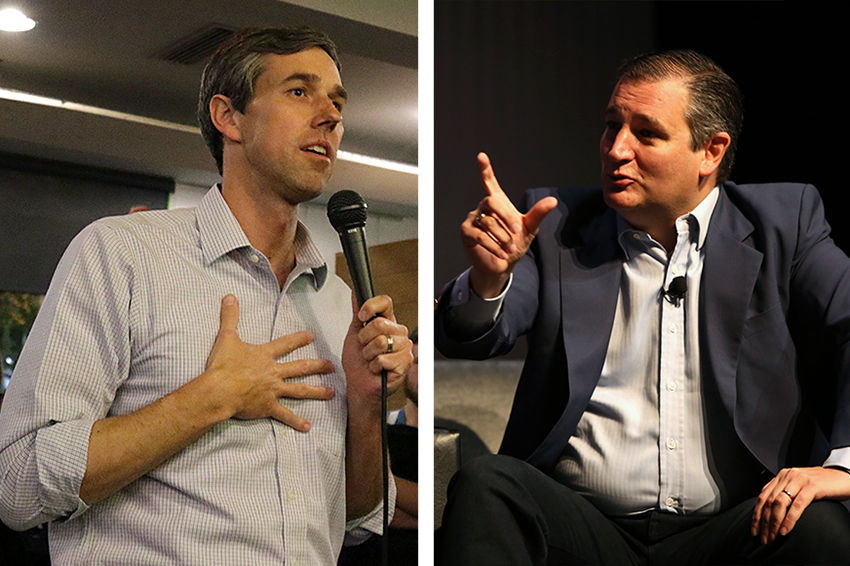Texas’ U.S. Senate primaries have boiled down to two names: Republican incumbent Ted Cruz and Democrat Beto O’Rourke, each leading the pack in their respective races.
O’Rourke, a three-term congressman who represents El Paso, announced his bid to run against Cruz last March. O’Rourke also said he would run an entirely grassroots-driven campaign by visiting as many places in Texas as possible to win over voters. This strategy mirrors Cruz’s own grassroots campaign for Senate in 2012, when he defeated former Lt. Gov. David Dewhurst in a primary runoff.
Cruz’s opponents in the primary include a former federal appointee to the Department of Transportation under President Ronald Reagan; a former Houston-area mayor; an accountant; and an energy lawyer from Houston. The lawyer, Stefano de Stefano, was endorsed by the Dallas Morning News’ editorial board for his pragmatism and solution-oriented approach to politics. On Cruz, the board said after six years in office — which was partially filled by a 2016 presidential bid — the senator had little to show for his time in D.C.
However, a report by the Morning News’ Washington Bureau chief said, even with four primary challengers, Cruz is still heavily favored to win.
On the Democratic side, O’Rourke leads the pack with millions of dollars in campaign donations. He is challenged by Sema Hernandez, a self-described democratic socialist, and Edward Kimbrough, a former industrial engineer for the United States Postal Service. O’Rourke, like Cruz, is heavily favored to win his primary and received an endorsement from the Morning News’ editorial board. The Austin American-Statesman’s editorial board did not offer endorsements for these primary races.
With both Cruz and O’Rourke serving as strong front runners, this race will likely heat up following the March primary. Cruz, a symbol of the Tea Party movement that swept the Republican party into power in D.C. six years ago, could face a steeper battle than Republicans traditionally see in the midterms. If O’Rourke wins, he would be the first Democrat to win a statewide race in more than two decades.
State politics experts have said because Texas is still very much a red state, O’Rourke might face difficulty in gaining support from the Democratic National Committee, which could give a strong boost to his campaign. Traditionally in midterm elections, the DNC supports candiates in swing states where they have better chances, not Republican powerhouses.
However, O’Rourke has outraised Cruz in campaign funds in several fiscal periods recently. Despite still having less overall campaign funds than Cruz, O’Rourke raised $2.4 million in December to Cruz’s $1.9 million. In the first 45 days of 2018, O’Rourke also gathered another $2.3 million, nearly three times that of Cruz’s $803,000 haul during the same period, according to reports filed with the Federal Election Commission.
The Texas Tribune reported that with O’Rourke’s increasing fundraising, this could be a sign of momentum in his campaign. However, considering the size of Texas and the high cost of campaigning here, the race could easily cost tens of millions of dollars, much more than O’Rourke has in the bank right now.





















